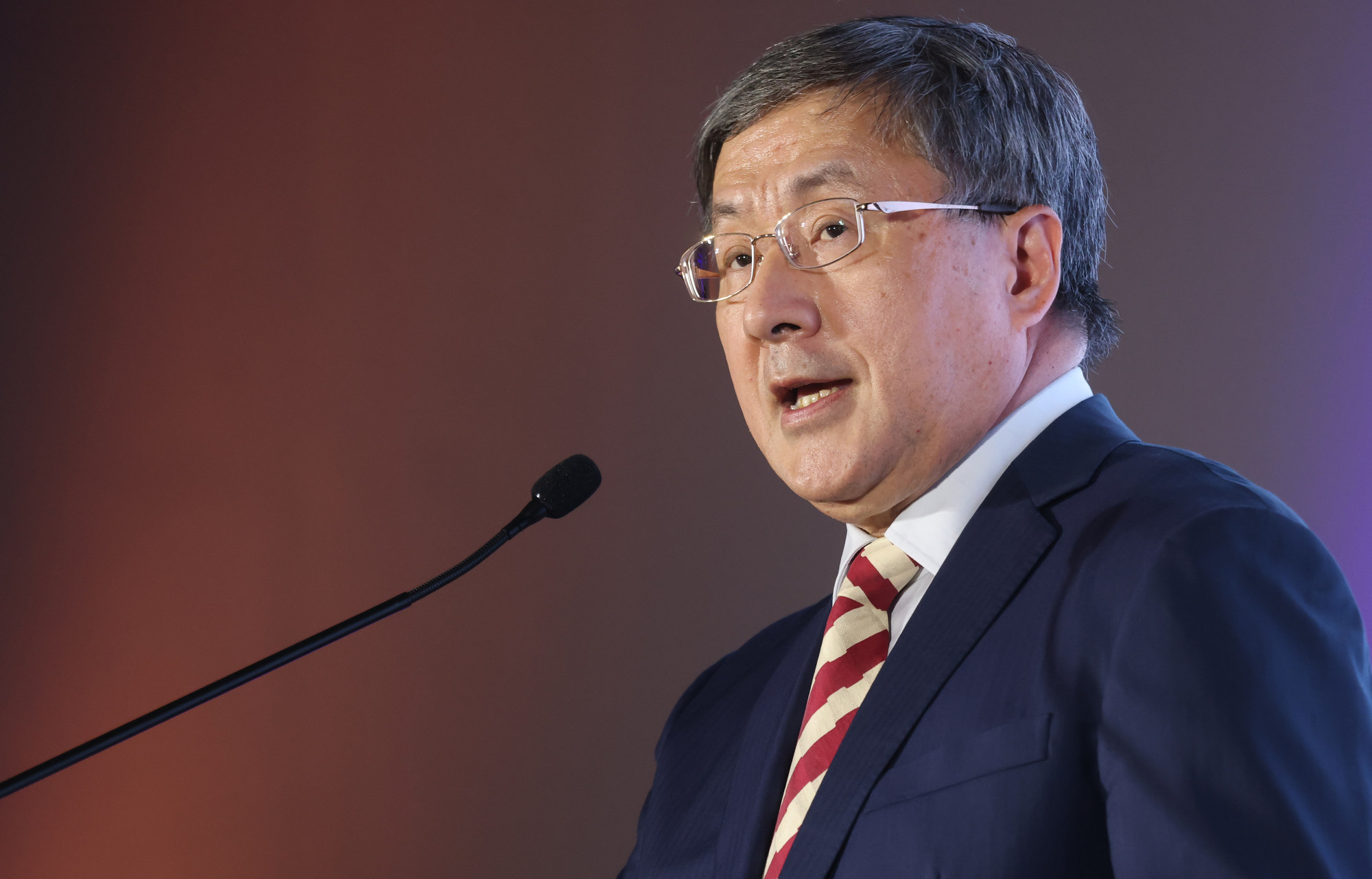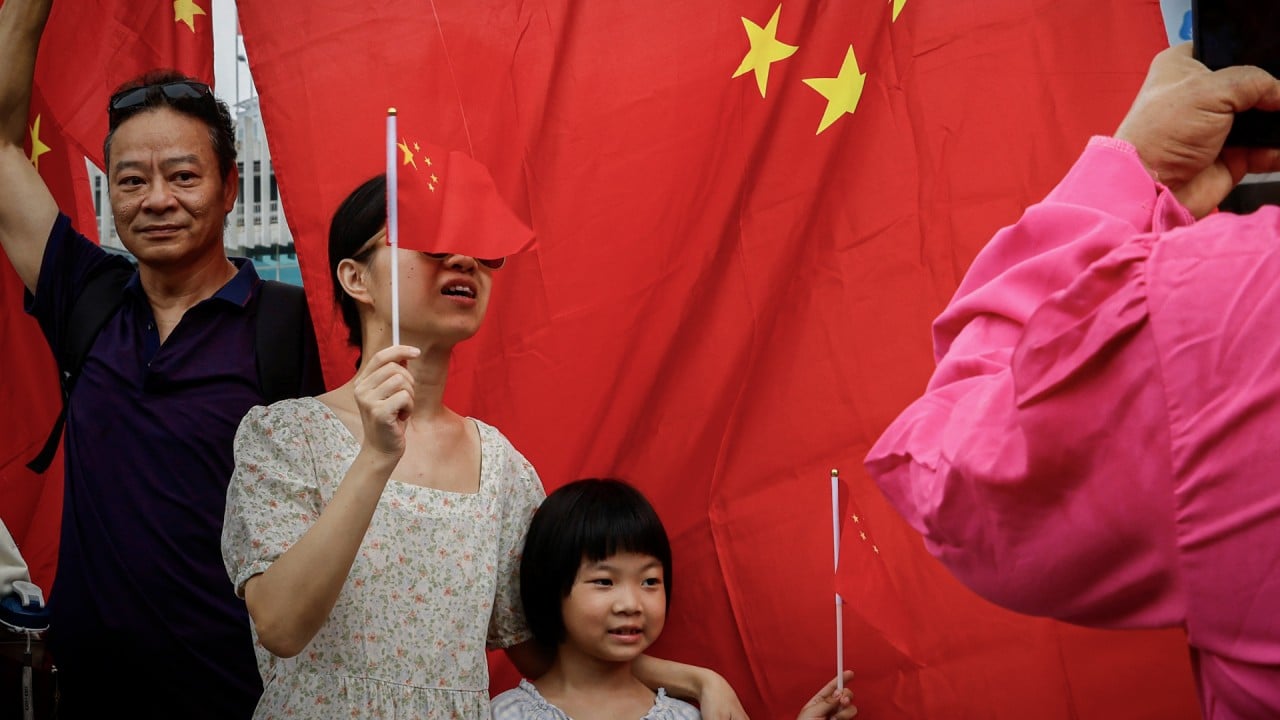
Bigger cash bonuses to boost Hong Kong’s birth rate will drain public coffers, official says after rejecting call for HK$40,000 annual handout
- Deputy Chief Secretary Warner Cheuk turns down lawmaker’s call for five-year handout for low-income families with newborns and higher child tax allowance
- ‘The proposal will generate tens of billions in expenditure for the government, which is not a good use of public resources, and authorities have no plan to adopt it,’ he says
Introducing more generous cash incentives to encourage couples to have children and counter Hong Kong’s flagging birth rate will strain public coffers, a senior official has said after rejecting calls to give some families with newborns a HK$40,000 (US$5,100) annual handout for the first five years of the child’s life.
The number of births dropped from 52,900 in 2019 to 43,000 in 2020, and then from 37,000 in 2021 to 32,500 in 2022, an almost 40 per cent decline over the entire time period.
Legislator Peter Shiu Ka-fai on Wednesday was among those calling for more substantial cash bonuses and suggested giving low-income families HK$40,000 per year for each newborn until the child turned five.

But Deputy Chief Secretary Warner Cheuk Wing-hing turned down the policy suggestion, saying: “The proposal will generate tens of billions in expenditure for the government, which is not a good use of public resources, and authorities have no plan to adopt it.”
Selectively applying the policy would take up further government resources and generate a “huge amount of administrative cost”, he added.
Cheuk also shot down Shiu’s suggestion to encourage middle-income households to have more children through tax allowances of HK$150,000, HK$300,000 and HK$600,000 for the first, second and third child, respectively.
“The government must consider the impact of the tax allowance proposal on public finances, and whether it is in line with the principle of simple and fair taxation, to strike a balance between maintaining fiscal health and reducing the burden on taxpayers,” Cheuk said.
The city official also said the suggested child tax allowance would reduce the government’s annual income by HK$4.2 billion, representing 5 per cent of the revenue gathered from salaries tax and personal assessments.
In February, finance chief Paul Chan Mo-po increased the basic child allowance from HK$120,000 to HK$130,000 to ease the financial burden on parents. The move took effect at the start of current financial year and was expected to benefit 324,000 taxpayers but reduce tax revenue by HK$610 million each year.
In Japan, authorities provide a monthly allowance of 15,000 yen (US$100) for each child under the age of three born into low and middle-income families, and 10,000 yen for those aged three to 15.
The Japanese government also offers a 420,000 yen childbirth allowance for those covered by national health insurance.
Lee said families with newborns would be given priority when buying subsidised flats, with 10 per cent of the supply set aside for them. Those in the queue for public rental flats also would enjoy a one-year reduction in waiting times.
The tax reduction ceiling for interest on home loans or domestic rents for new parents will also be raised from HK$100,000 to HK$120,000, until the child reaches 18.
Cheuk on Wednesday said the government incentives were a package deal and authorities could not rely solely on offering cash bonuses to boost the birth rate.
But lawmaker Starry Lee Wai-king argued that reserving 10 per cent of subsidised flats for families with newborns might not be a sufficient incentive, as such properties were often oversubscribed.
She asked authorities to draft a waiting list of households with newborns looking to buy the flats to help increase the families’ chances of getting one.
Cheuk said the government could not guarantee a subsidised flat for each family with a newborn due to the limited supply, but promised to discuss Lee’s proposal with the housing authorities.
“Many said it takes millions of dollars to raise a kid in Hong Kong,” he said. “People may not like it, but I am quite sceptical about this saying … and that would definitely scare many young couples away from having a child.
“I do not think parents are thinking about spending HK$4 million, or HK$6 million, when they consider adding a new member to the family.”


